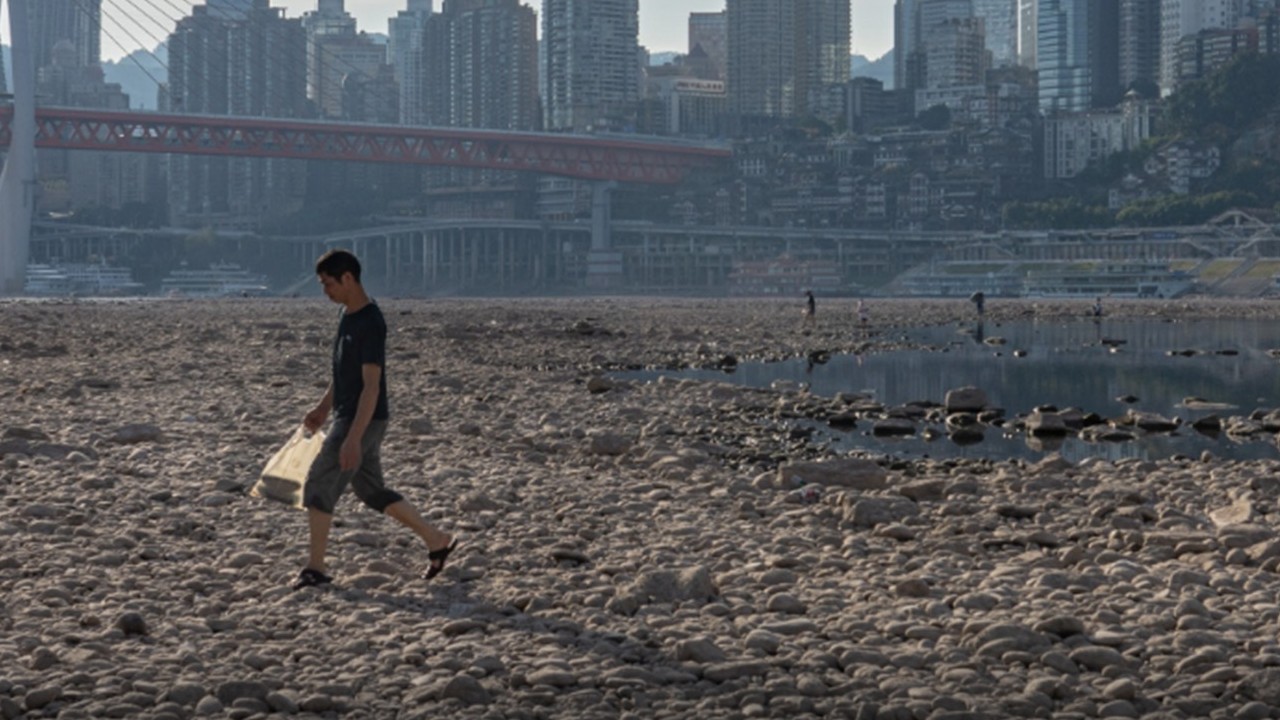
China’s top climate envoy decries trade controls on renewables as US and EU diplomats push Beijing on emissions goals
- Protectionism could imperil G20 clean energy goals, says Xie Zhenhua at forum in Chinese capital
- During same panel, US and EU ambassadors urge China to cut use of coal and sign pledge to slash methane
He made the comments at a forum held by Chinese think tank Centre for China and Globalisation in Beijing on Thursday.
“We hope relevant countries will stop politicising cooperation in the renewable energy technology industries and will formulate fair, open, non-discriminatory trade policies for Chinese products and companies as well as those from other countries,” Xie said, without naming specific countries.
Chinese and US climate envoys renew talks in lead-up to COP28
Xie was speaking at a panel on climate change to an audience drawn heavily from diplomatic missions in Beijing. He shared the stage with US ambassador Nicholas Burns and his EU counterpart Jorge Toledo.
US President Joe Biden has imposed import bans on solar panel materials from Chinese companies based on forced labour allegations and signed a climate change law last year promising renewed subsidies for US solar manufacturers to compete with Chinese goods.
China, which dominates manufacturing of critical solar technologies, imposed restrictions in August on exports of gallium and germanium – two minerals critical for solar panel production.
Meanwhile, the EU and China have tussled over solar industry export restrictions for a decade, with Brussels seeking to balance cheap Chinese imports while boosting renewable energy installations to meet its ambitious target of generating 45 per cent of its energy through renewables by 2030.
China, the US and the EU are the top three greenhouse gas emitters in the world and have repeatedly urged one another to do more at the annual United Nations Climate Change Conferences, more commonly known as the COP meetings.
“China is the world’s largest emitter of greenhouse gases, it will be impossible for the world to keep warming to 1.5 degrees Celsius without an enhanced ambition from China,” said Burns, the US envoy, citing a target governments agreed in Paris in 2015.
EU ambassador Toledo also called China out for its coal usage, saying he had concerns about coal-fired power plants that had recently opened in the country and could have a bad long-term impact on decarbonisation.
Toledo also urged China to renew its pledges on the use of renewable energy and to announce those promises at the COP28 meeting to be held in Dubai on November 30.
“We encourage China to say it because they could set an example, and they have a very good opportunity now,” he said.
China has pledged to reach peak carbon dioxide emissions before 2030 and achieve carbon neutrality before 2060.
Both the US and EU ambassadors asked China to pledge to cut methane emissions. Beijing has not signed the Global Methane Pledge initiated at the COP26 conference in Glasgow in 2021 to slash world methane emissions by 30 per cent from 2020 levels by 2025.
In response, Xie defended China’s coal use policy by saying China had used more renewables than coal, which he said now accounted for 46 per cent of total energy use, and that the energy transition was a “step by step” process.
Why hotter weather in China could mean more suicide deaths
Xie also took aim at “developing countries” for not fulfilling their pledge at the UN meeting on climate change in Copenhagen in 2009 to mobilise US$100 billion per year by 2020 for climate action.
“This pledge has not been fulfilled up to now,” Xie said. “Financing is a very important opportunity in building political trust.”
Despite prodding each other to uphold climate commitments, both Burns and Xie hailed the recent progress in bilateral relations.
Xie and Kerry held meetings for over 30 hours when the latter visited Beijing in July, and the two have held over 50 meetings, both in person and online, since Xie’s appointment in February 2021, according to the Chinese climate envoy. Xie added that he and Kerry had recently been holding video calls every two weeks.
The meetings in July marked the resumption of climate discussions after nearly a year-long freeze after Beijing suspended a range of bilateral talks in 2022 in response to then US House Speaker Nancy Pelosi’s visit to Taiwan.
Xie added Beijing and Washington had reached a consensus to create a working group on low-carbon smart cities, the circular economy and methane emissions.
Xie also shared his hopes for China, the US and the EU to work together in the long run despite future “competition”.
“China, the US and the EU have clear goals to reach in energy transition, and while this may objectively mean competition, we hope that this would be a healthy competition,” he said.



